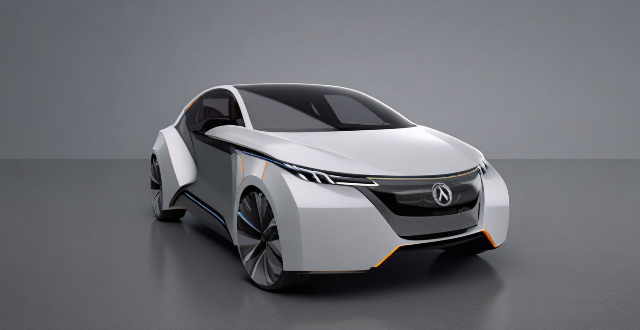The main difference between a gasoline hybrid and an electric car is their fuel source and how they generate energy. Gasoline hybrids run on a combination of gasoline and electricity, while electric cars run solely on electricity. Gasoline hybrids produce lower emissions than traditional gasoline-powered vehicles but still require gasoline to operate. Electric cars produce zero tailpipe emissions but may still result in emissions from electricity production. Finally, gasoline hybrids typically have a longer range than electric cars due to their ability to switch between using gasoline and electricity depending on driving conditions.

The Difference Between a Gasoline Hybrid and an Electric Car
A gasoline hybrid and an electric car are both types of vehicles that use alternative fuel sources to power their engines. However, there are some key differences between the two.
Gasoline Hybrids
- Fuel Source: Gasoline hybrids run on a combination of gasoline and electricity. They have a traditional internal combustion engine that runs on gasoline, as well as an electric motor that is powered by a battery pack.
- Energy Generation: The energy for the electric motor in a gasoline hybrid is generated by the engine during normal driving conditions. This means that when the car is accelerating or decelerating, the excess energy is captured and used to charge the battery pack.
- Emissions: Gasoline hybrids produce lower emissions than traditional gasoline-powered vehicles because they rely less on the internal combustion engine. However, they still produce some emissions because they still require gasoline to operate.
- Range: Gasoline hybrids typically have a longer range than electric cars because they can switch between using gasoline and electricity depending on driving conditions.
Electric Cars
- Fuel Source: Electric cars run solely on electricity. They have an electric motor that is powered by a large battery pack.
- Energy Generation: The energy for an electric car comes from charging the battery pack using an external power source, such as a wall outlet or public charging station. Some electric cars also have regenerative braking systems that capture energy from braking and use it to charge the battery pack.
- Emissions: Electric cars produce zero tailpipe emissions because they do not burn any fuel. However, the production of electricity used to charge the battery pack may still result in emissions depending on how the electricity is generated.
- Range: Electric cars typically have a shorter range than gasoline hybrids because they rely solely on the battery pack for power. However, advances in battery technology have led to significant improvements in range over time.
In summary, the main difference between a gasoline hybrid and an electric car is their fuel source and how they generate energy. Gasoline hybrids run on a combination of gasoline and electricity, while electric cars run solely on electricity. Gasoline hybrids produce lower emissions than traditional gasoline-powered vehicles but still require gasoline to operate. Electric cars produce zero tailpipe emissions but may still result in emissions from electricity production. Finally, gasoline hybrids typically have a longer range than electric cars due to their ability to switch between using gasoline and electricity depending on driving conditions.